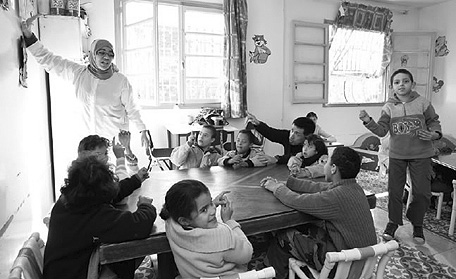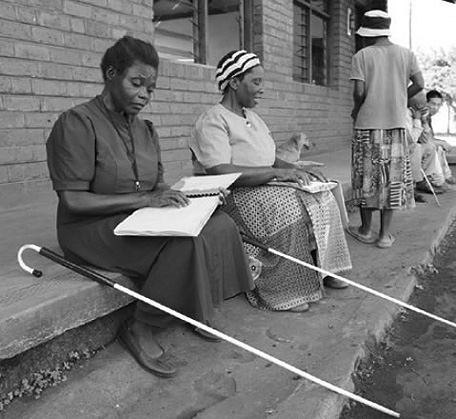Japan's Official Development Assistance White Paper 2011
Section 3 Toward Achievement of Inclusive Growth
Economic growth creates the funds necessary for social development, and gives a push toward the achievement of the Millennium Development Goals (MDGs). However, economic growth does not always contributes to poverty reduction. Efforts to achieve rapid economic growth may put a strain on society. To widely share the fruits of growth and the benefits of globalization, namely the global exchange of people, goods, capital, information, and technology across the boundaries in various fields such as politics, economy and culture, it is necessary to provide opportunities for every individual to participate in the process of enhancing growth. It is important to promote growth which does not leave anyone behind (inclusiveness) (Note 6), and which brings benefits equally (equity).
In order to achieve growth in an inclusive and equitable manner, it is significant to redistribute wealth created by growth to the poor and the socially vulnerable through basic social services. For example, affordable and high-quality healthcare services make it possible for people to participate in economic activities while living a healthy life. In addition, as is clear from Japan's experience of rapid economic growth, widespread high-quality education enables more people to play a role in advanced economic activities. Vocational training and capacity building are also essential to develop human resources that will be active in the labor market.
Establishment of a more equitable tax system, including progressive taxation, and efforts to implement conditional cash transfers (CCT)* have also garnered attention in order to ensure that wealth created by growth spreads to the poor. In addition, graft and corruption not only increase socio-economic disparities, but also create a sense of social injustice, and hinder the realization of a fair and equitable society. It is also important to achieve good governance by strengthening the administrative systems, administrative capacities, and institutions of developing countries.
Discussions were held regarding sustainable, inclusive, and equitable economic growth at the MDGs Follow-up Meeting in Tokyo in June, 2011. At the Meeting, emerging and developing countries that have achieved high economic growth in recent years shared their experiences of attaining growth and working to ensure equity. Developing countries expressed their expectations for assistance by the international community not only in filling the financing gap for the achievement of sound economic growth, but also in filling the gap in terms of knowledge and experience.
Terminology
*Conditional Cash Transfer (CCT)
Payment of cash to poor households for meeting certain conditions such as regular checkups for pregnant women and attendance at school.

A facility for the intellectually disabled in Morocco where a Japan Overseas Cooperation Volunteer works (Photo: Shinichi Kuno/JICA)

Students learning Braille at a vocational training school for the blind in Malawi (Photo: Koji Sato/JICA)
Notes:
(6) Inclusiveness refers to providing opportunities for every individual to participate in a society or an organization on an equal footing with others, while eliminating exclusion and differentiation that occurs due to different social or cultural backgrounds, disabilities and other individual characteristics. In particular, it refers to making participation easier for the socially vulnerable and groups that have been alienated from society.
